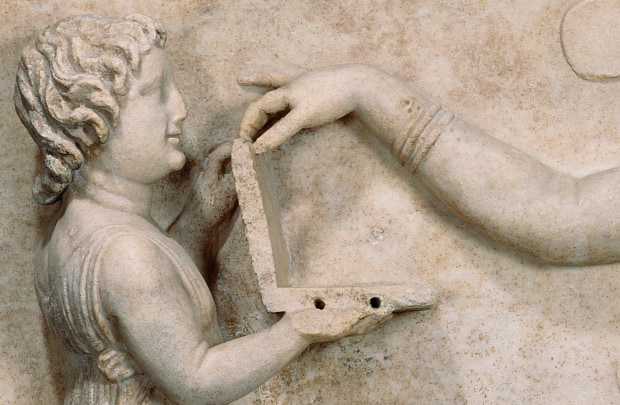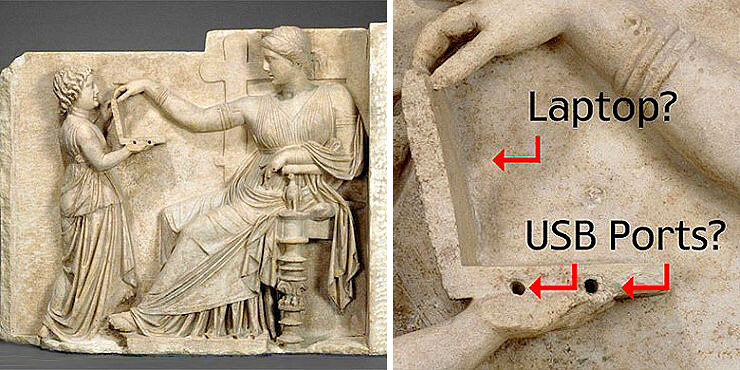Debunking the Myth: Ancient Greek Statue and the Alleged Time-Traveling Laptop
In recent years, a curious claim has circulated among conspiracy theorists and some corners of the internet: that an ancient Greek statue from 100 BC depicts a modern laptop or tablet. The theory suggests that the Oracle of Delphi, a mystical site in ancient Greece, may have had connections with supernatural beings who shared advanced technology and information with the priests, leading to the creation of such devices. However, historians and experts have a different perspective on this intriguing artifact.
The sculpture in question is a remarkable piece of ancient Greek artistry. It features a deceased woman depicted in the act of “touching the lid of a shallow chest.” While some have drawn parallels between the object in her hand and a modern laptop or tablet, experts dismiss these claims as unfounded.
The Oracle of Delphi was a revered sanctuary in ancient Greece, where people sought guidance and predictions from the Pythia, a priestess believed to be the medium for communication with the god Apollo. It was a place of great importance in the ancient world, but the notion that it had access to advanced technology is speculative at best.
Conspiracy theorists have propagated the idea that the Oracle’s connection with supernatural beings allowed ancient Greeks to access advanced knowledge and technology, possibly leading to the creation of a laptop-like device. However, this theory lacks any concrete evidence and is not supported by the historical record.
While the sculpture’s object may resemble a modern device, it is crucial to consider the context of the time in which it was created. Ancient Greek art often depicted daily life, rituals, and objects of importance. The “shallow chest” in the sculpture could be a representation of a jewelry box or a religious artifact, not a laptop or tablet.
StillSpeakingOut, a prominent conspiracy theorist, admitted in a 2014 YouTube video that he was not claiming the sculpture was an ancient laptop computer. Instead, he suggested that it reminded him of the Oracle of Delphi, which was believed to facilitate communication with the gods for advanced information.
While the idea of an ancient Greek laptop may be fascinating and intriguing to some, it remains firmly in the realm of conspiracy theories without any substantial historical or archaeological support. The sculpture in question more likely represents a traditional object from its time, emphasizing the importance of interpreting ancient art within its historical context. As with many such claims, skepticism and a reliance on credible historical research should guide our understanding of the past.
Hits: 5





